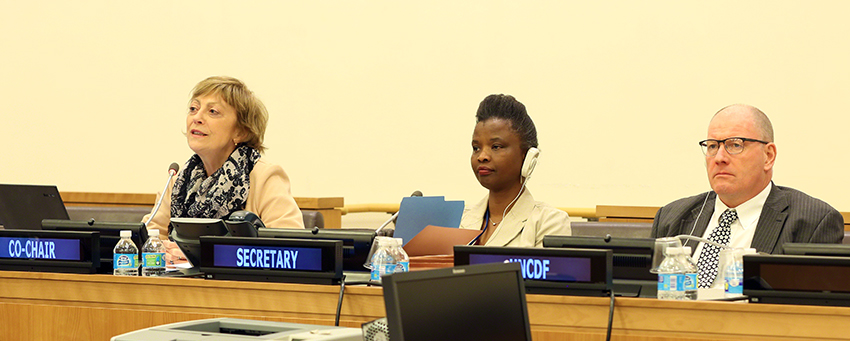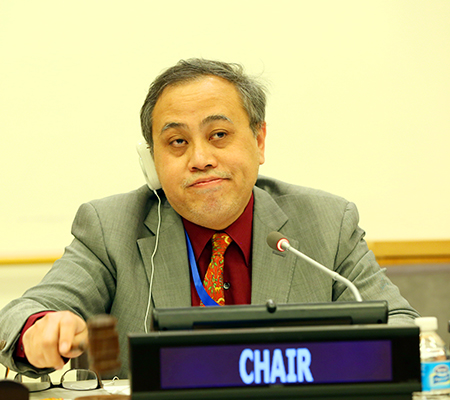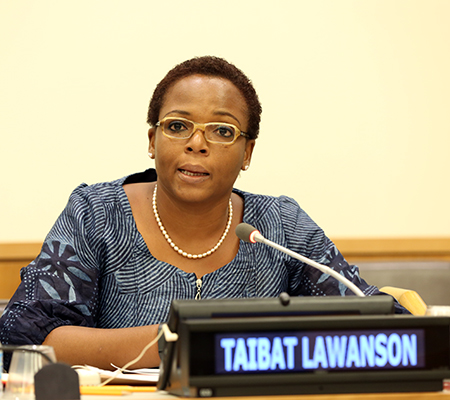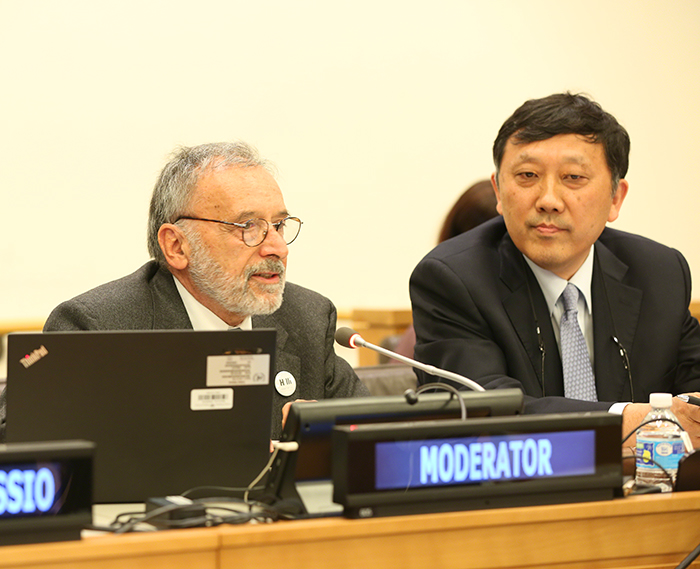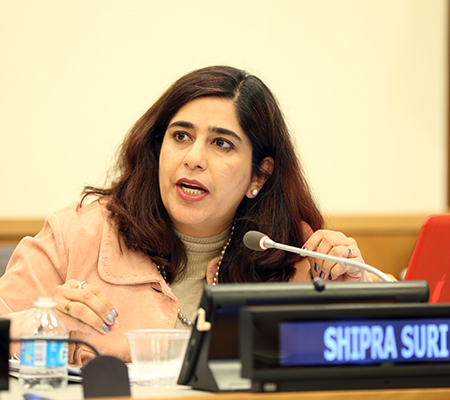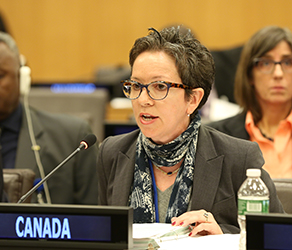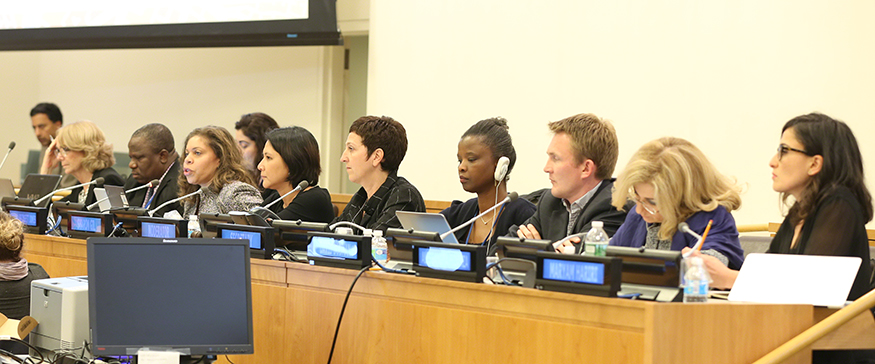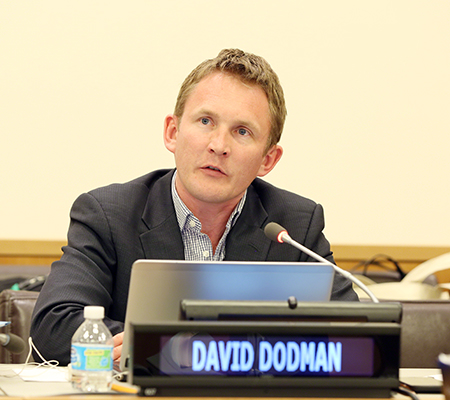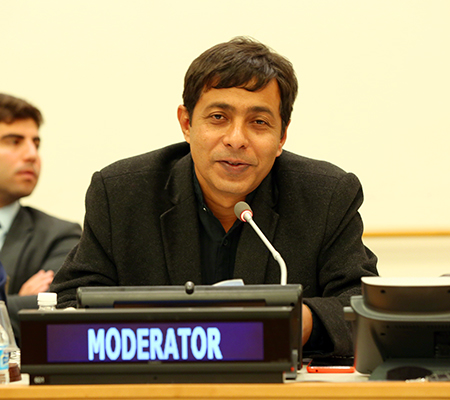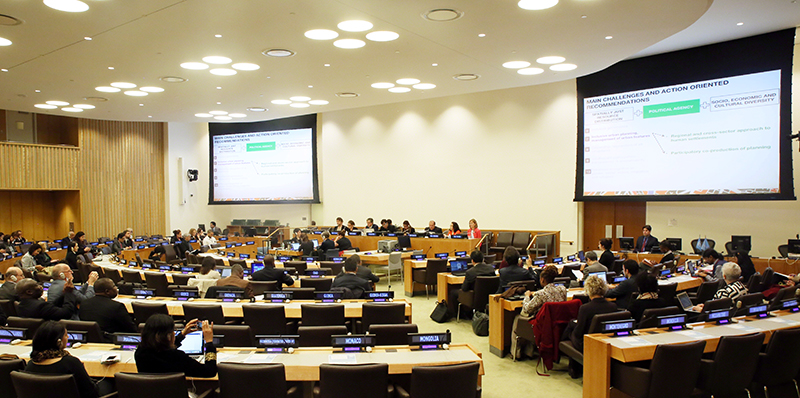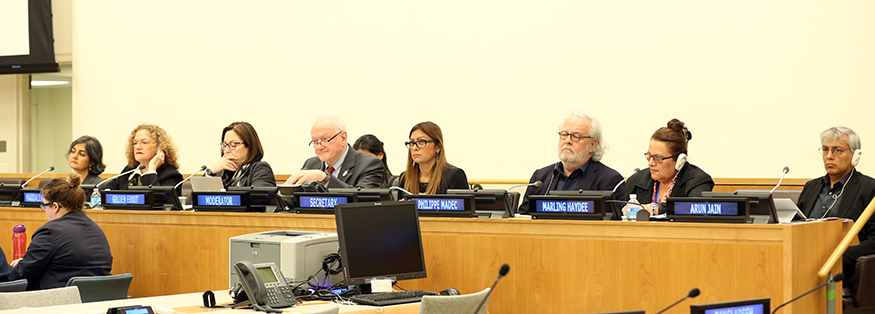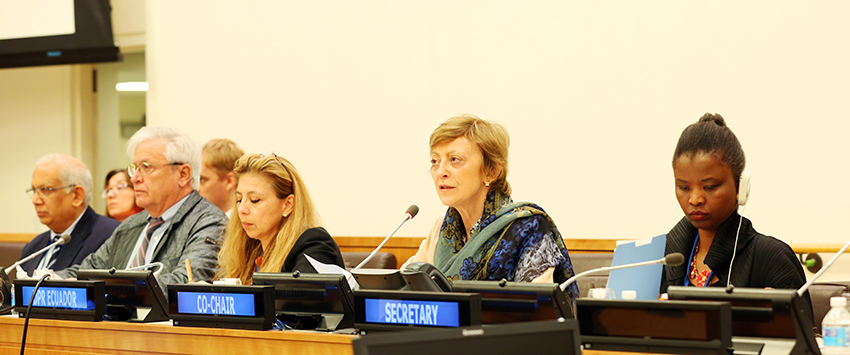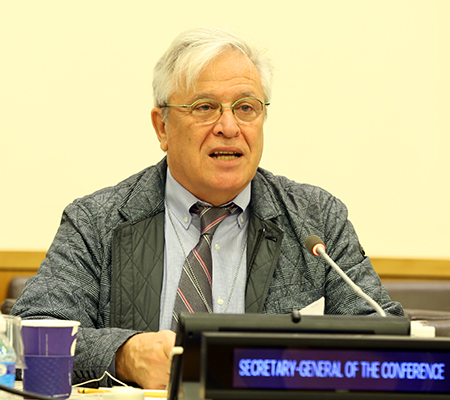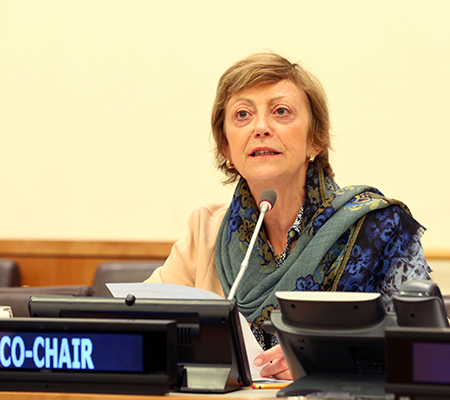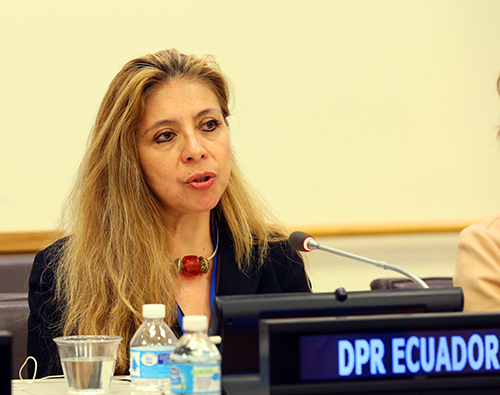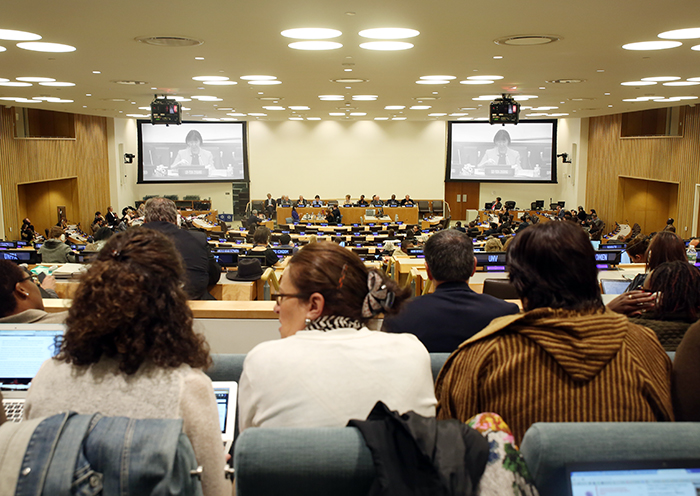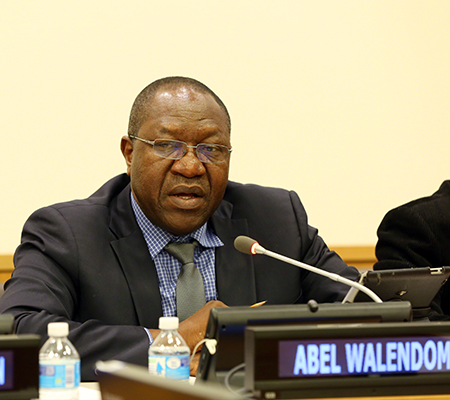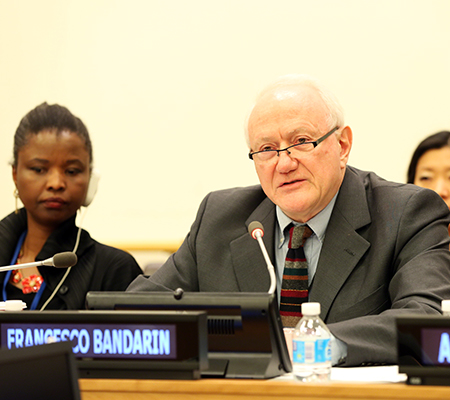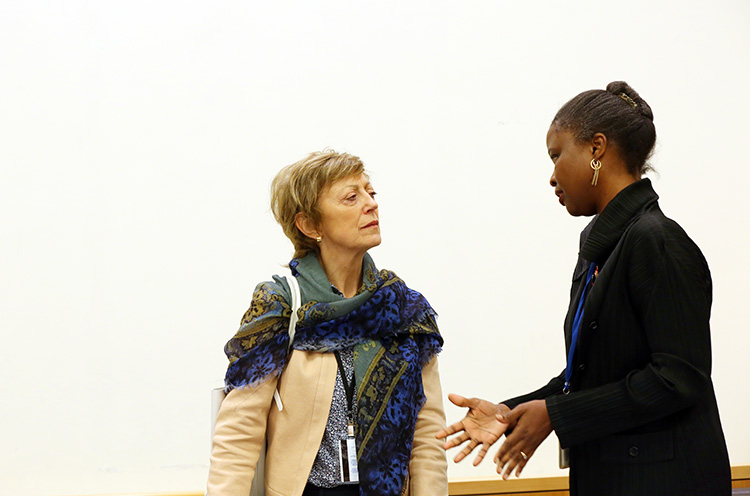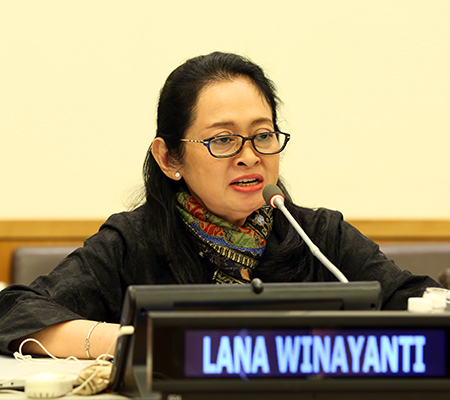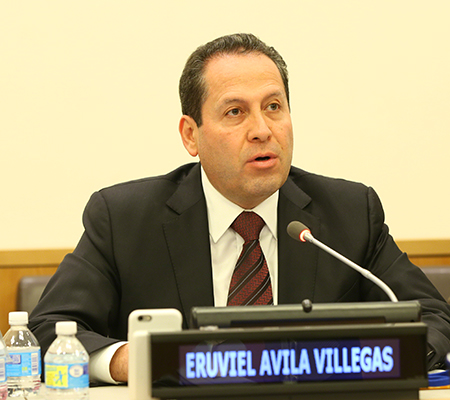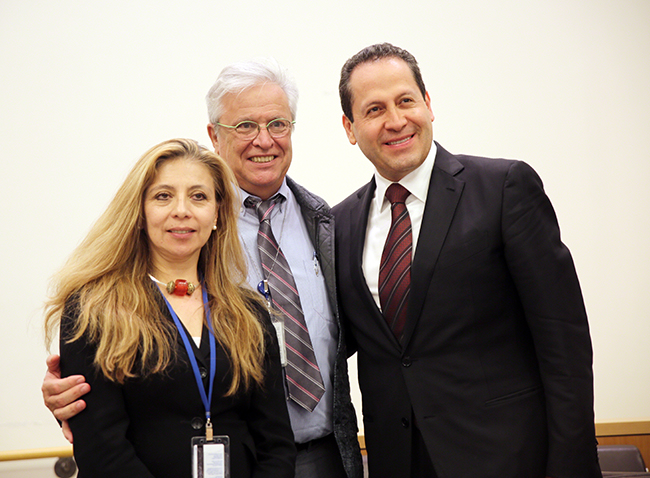Habitat III Open-Ended Informal Consultative Meetings
25-29 April 2016 | UN Headquarters, New York
Summary Highlights of the Meeting
Download ENB+ Meeting Report |
||||||||||
Receive our ENB bulletins and reports by email: |
||||||||||

| Follow @iisdrs | ||

Loading... |
||
|
Receive emailed updates with the news articles above plus related information and announcements from our SDG community mailing list: |
||

Members of the General Assembly of Partners (GAP), a consortium of Habitat III stakeholders |
||
|
On Friday, 29 April, the Habitat III Open-Ended Informal Consultative Meetings entered its final day at UN Headquarters in New York. The day was organized around the issue of “Enhancing the Means of Implementation: follow-up and review.” In the morning, two panels took place under the theme “Enhancing financing and means of implementation,” namely: “Municipal finance and local fiscal systems” and “Financing urban development.” On the first panel, panelists explored the outcomes of Policy Unit 5, including around: devolution of authority to collect local-level taxes; flexibility to adopt the right mix of revenue streams; and expansion of local revenue sources. On the second, the panel discussed the outcomes of the March 2016 thematic meeting in Mexico City, Mexico, on financing urban development. Debates focused on the need to foster fiscal decentralization, enhance public-private partnerships and effectively combat land speculation. In the afternoon, the meeting discussed follow-up and review of the New Urban Agenda and considered outcomes of the session. In the closing session, Joan Clos, Secretary-General of the Habitat III Conference, stressed the importance of urbanization for sustainable development, noting that the understanding of development has changed, as well as that of the role of urbanization in promoting prosperity. The meeting was gaveled to a close at 5:03 pm. |
||
|
IISD Reporting Services, through its ENB Meeting Coverage, is providing web coverage from the Habitat III Open-Ended Informal Consultative Meetings. In addition, IISD Reporting Services, has published a summary report from the meetings, which is availabe in HTML and PDF format. | ||

|
||
|
|
|
|
|
|
|
|
|
|
|
On Thursday, 28 April, the Habitat III Open-Ended Informal Consultative Meeting continued at UN Headquarters in New York. The day focused on “Effective Implementation,” organized around two themes “establishing a supportive national, regional and local framework” and “strategic and integrated planning and management of urban spatial development.” In the morning, under the theme on establishing a supportive national, regional and local framework, two panels addressed national urban policies, and urban governance, capacity and institutional development. On national urban policies, panelists discussed the outcomes of Policy Unit 3, particularly the role of: technical and political processes at that national level; citizen participation; empowerment of local authorities; and governance standards. On urban governance, capacity and institutional development, the panel focused on the recommendations of Policy Unit 4, discussing the role of governance, including: decentralization; participatory processes; digital technology; and linkages between the urban and sustainability agendas. In the afternoon, under the theme strategic and integrated planning and management of urban spatial development, two panels addressed urban spatial strategies – land market and segregation, and metropolitan areas and intermediate cities. On urban spatial strategies – land market and segregation, discussions focused on the results of Policy Unit 6, touching on: the importance of spatial planning; approaches to prevent segregation; inclusive planning; provision of public spaces; and territorial approaches. On metropolitan areas and intermediate cities, the panel emphasized the outcomes of the thematic meetings in October 2015 in Montreal, Canada, on metropolitan areas, and in November 2015 in Cuenca, Ecuador, on intermediate cities. Discussions addressed: the role of metropolitan areas in sustainable urban development; the need for integrated policy approaches; and fit-for-purpose and participatory planning processes. The day concluded with a short wrap-up session that examined the outcomes of the sessions on effective implementation. |
||
|
|
|
|
|
|
|
|
On Wednesday, 27 April, the Habitat III Open-Ended Informal Consultative Meeting continued at UN Headquarters in New York. The day was organized around “Transformative Commitments for a Sustainable Urban Development” on the two themes “sustainable and inclusive urban growth, prosperity and opportunities for all” and “ecological and resilient cities and human settlements.” Visit the full ENB web coverage for Wednesday, 27 April 2016 |
||
|
|
|
|
|
|
|
|
|
|
|
|
|
|
|
|
|
|
|
|
|
On Tuesday, 26 April 2016, the Habitat III Open-Ended Informal Consultative Meeting continued at UN Headquarters in New York. The day was organized around “Transformative Commitments for a Sustainable Urban Development” on the theme “Leave No One Behind, Urban Equity and Poverty Eradication.” |
||
|
|
|
|
|
|
|
|
|
On Monday, 25 April 2016, the Habitat III Open-Ended Informal Consultative Meeting commenced at UN Headquarters in New York. The opening session included remarks by Joan Clos, Secretary-General of the Habitat III Conference, who stressed the importance of multi-stakeholder input into the zero draft of Habitat III. |
||
|
|
|
|
|
|
|
|
|
|
|
|
|
has been provided by the Habitat III Secretariat







